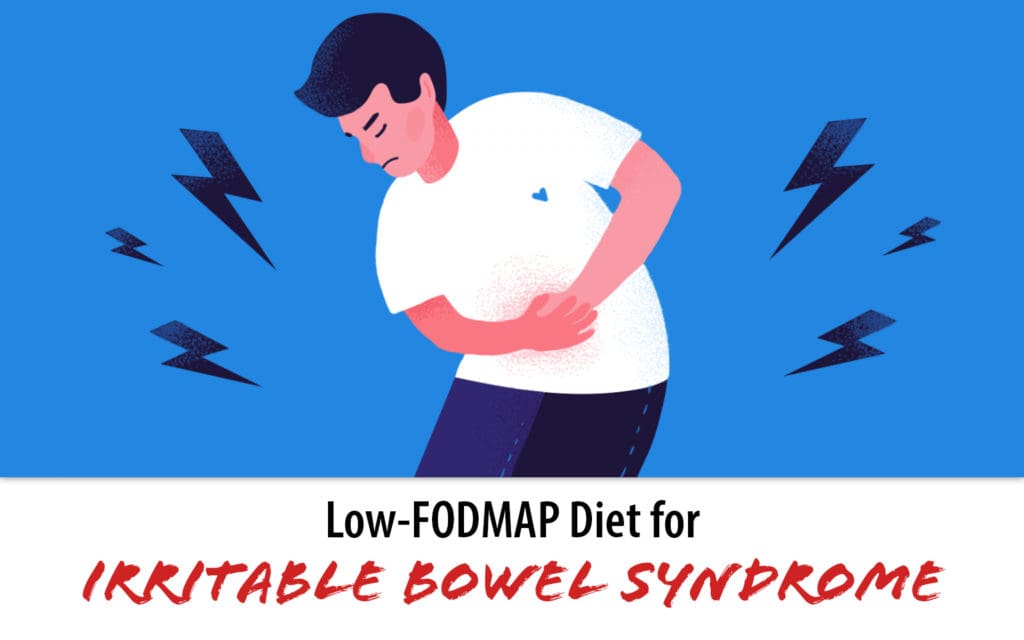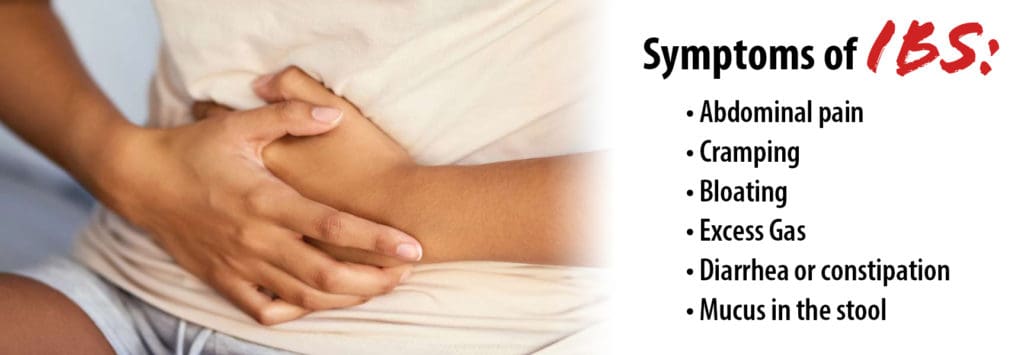Dealing with IBS? A Low-FODMAP Diet Can Help


While hunger pangs and occasional gassiness are typical – if annoying – parts of the human stomach, it’s estimated that 30-50 million Americans suffer from much more serious symptoms related to Irritable Bowel Syndrome (IBS). IBS can be a painful and regularly occurring issue that disrupts every facet of daily life, keeping you from work, spending time with family and even a full night’s sleep.
The Low-FODMAP diet can help those with IBS discover which foods worsen their symptoms and allow them to reclaim their lives.
Irritable Bowel Syndrome affects the large intestine. Common symptoms can include:


Although the exact cause of IBS is not known, research has shown that managing diet, lifestyle, and stress can help relieve symptoms. Unfortunately, this is usually much easier said than done.
The Low-FODMAP diet is a clear and effective way to reduce IBS symptoms without making disruptive changes to your life. In fact, over 80% of people diagnosed with IBS who follow the Low-FODMAP protocol see an improvement in their symptoms and quality of life!
What are FODMAPs?
FODMAPs are short-chain carbohydrates that are found naturally in many of the foods we eat. Depending on the quantity consumed and an individual’s tolerance, FODMAPs can lead to increased gassiness, bloating, abdominal pain, diarrhea, and/or constipation.
FODMAP stands for:
Fermentable
Oligosaccharides – wheat, rye, legumes, and various fruits and vegetables
Disaccharides – milk, yogurt, and soft cheese
Monosaccharides – various fruit including figs and mangoes, and sweeteners such as honey and agave
And
Polyols – certain fruits and vegetables including blackberries and lychee, and some low-calorie sweeteners
How can a low-FODMAP diet help with IBS?
The Low-FODMAP diet was researched and created by Monash University in Australia. It’s intended to help people suffering from IBS identify their personal food triggers that are the cause of their symptoms.
Even though FODMAPs can trigger IBS symptoms, they are probiotics that the body needs for good gut health, and so avoiding all FODMAPs long-term is not a healthy solution. The diet consists of three phases – elimination, reintroduction, and maintenance – which are used to determine what foods might be causing IBS symptoms while allowing you to continue to consume other FODMAP categorized foods.
It’s important to go through this process with a Registered Dietitian who is qualified to help implement the Low-FODMAP diet. Kristen Ludwig, Registered Dietitian and Certified Personal Trainer who is certified in the Low-FODMAP diet through Monash University, has helped her clients find relief by identifying which FODMAPs trigger each individual’s symptoms and helping to craft a diet that works around these triggers.
“Many people who suffer from IBS not only suffer from the potentially debilitating symptoms, but a lack of guidance from doctors” said Ludwig. “Most people will ultimately be diagnosed with IBS and simply told to ‘avoid foods that bother you.’ It’s frustrating and difficult for patients, but the low-FODMAP diet can provide a much clearer and more effective framework to prevent symptoms.”
Ludwig also expressed the importance of having professional guidance in the process of implementing a low-FODMAP diet, saying, “Often times, people trying the low-FODMAP approach on their own get stuck in the first phase of the diet and don’t know how to progress from there. This is an extremely restrictive way of eating and not nutritionally complete long term. The benefit of working with a dietitian specifically certified in the low-FODMAP diet is the customized approach to reintroducing each type of FODMAP and identifying exactly what foods and what quantity causes your symptoms. Once this is complete, a long term maintenance plan is developed for maximum symptom control and an overall healthy lifestyle, without the broad restrictions.”
Ludwig provides nutrition counseling and education for a wide range of needs, including weight loss, diabetes, heart disease, food allergies, and of course, the Low-FODMAP diet for IBS patients.
For her, the best part is, “hearing from clients that the low-FODMAP diet has changed their life. They’re now able to go about their daily lives without worrying about easy access to the bathroom, and that’s the power of the Low-FODMAP diet.”
To learn more about Kristen’s services and/or contact Kristen for a consultation, click here.
